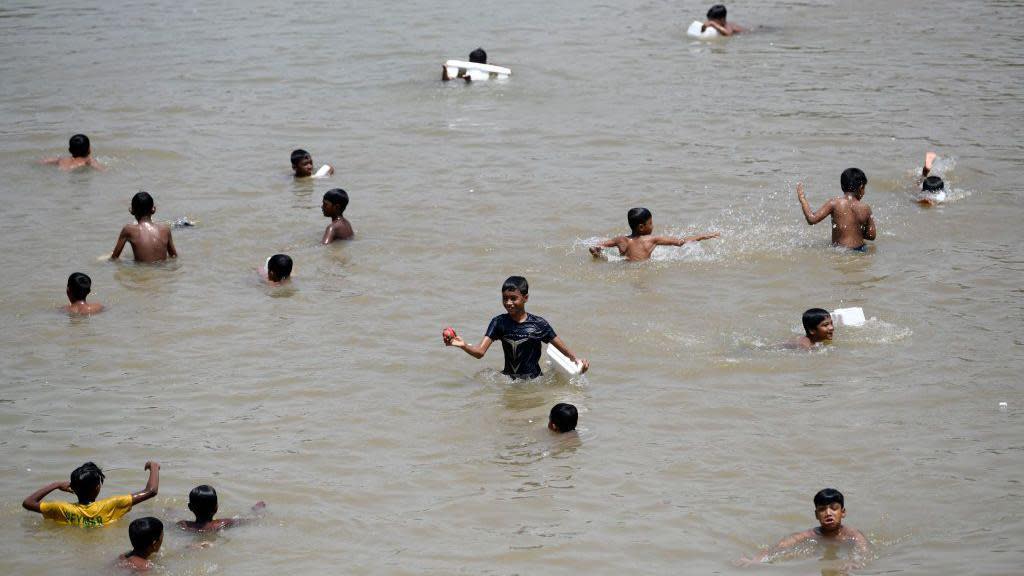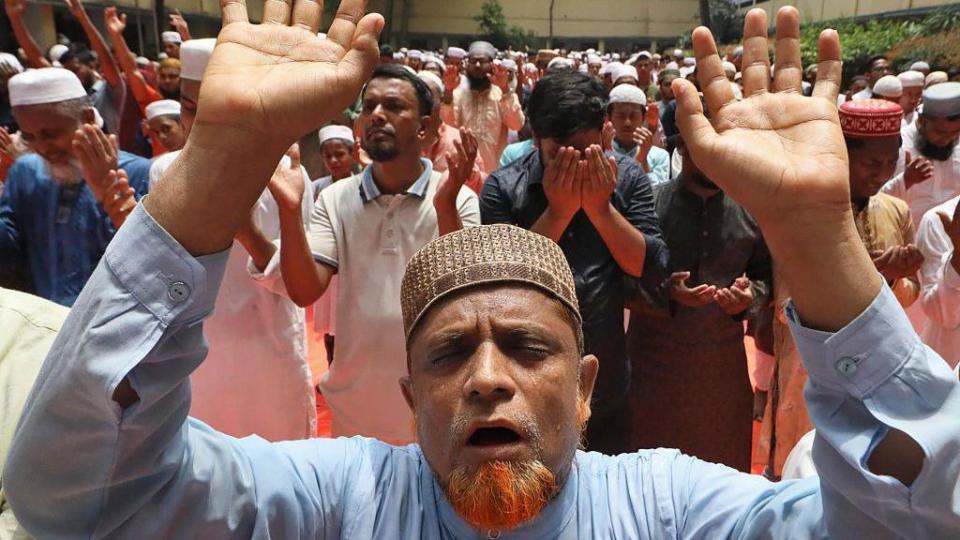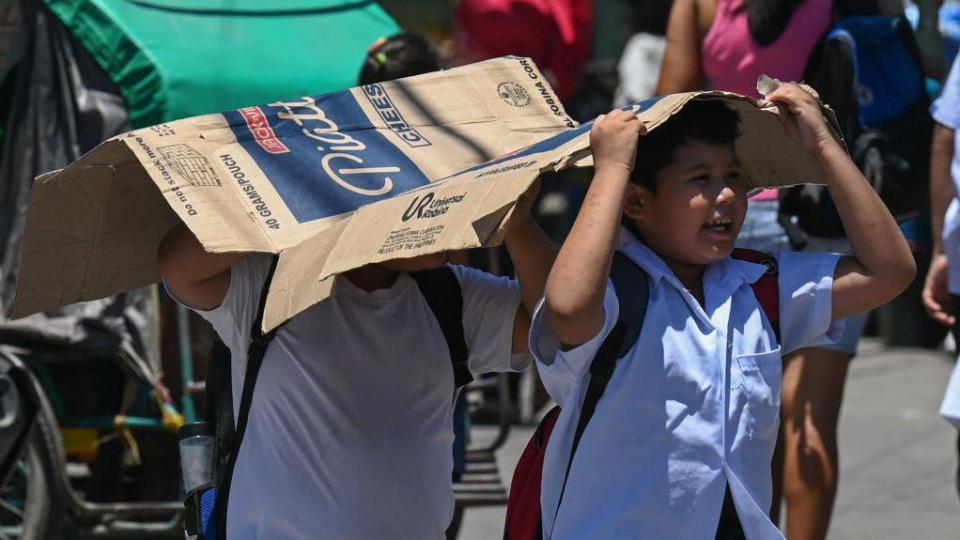Searing heat shuts schools for 33 million children

Searing heat has forced 33 million children out of schools in Bangladesh, as temperatures in parts of the country soared past 42C (108F).
Schools and colleges will be shut for at least until 27 April. This is the second year in a row that authorities made such a move due to extreme weather.
It follows school closures in the Philippines and India as a persistent heatwave sweeps across Asia.
“Children in Bangladesh are among the poorest in the world, and heat-related school closures should ring alarm bells for us all," said Shumon Sengupta, Save the Children's Bangladesh director.
The country's weather authorities issued its fourth heat alert for the month on Thursday.
Low-lying Bangladesh is one of the countries most vulnerable to the impacts of the climate crisis.
According to the Intergovernmental Panel on Climate Change, a 30- to 45-cm rise in sea level could displace more than 35 million people from coastal districts - about a quarter of the country's total population.

On Wednesday, thousands of Muslims in the country gathered in mosques and rural fields to pray for rain.
"Life has become unbearable due to lack of rains... Poor people are suffering immensely," Islamic cleric Muhammad Abu Yusuf told AFP news agency.
Mr Yusuf led a morning prayer service for 1,000 in the central portion of the capital Dhaka on Wednesday.
Bangladesh's weather authorities expect the extreme heat to continue for at least another week.
Hospitals and clinics have been asked to prepare for a higher patient load due to heat-related illnesses such as fever and headache.
Patients suffering from heatstroke will be admitted in air-conditioned wards, Health Minister Samanta Lal Sen said earlier this week.
"Leaders need to act now to urgently reduce warming temperatures, as well as factoring children – particularly those affected by poverty, inequality and discrimination - into decision making and climate finance,” Mr Sengupta said.
Unicef has warned that more than 243 million children across East Asia and the Pacific are at risk of heat-related illnesses and death.
Unusually high temperatures pose "grave risks" particularly to newborns and infants, as they are less able to regulate their body temperatures than adults, the agency said.

City officials in Thailand's capital Bangkok warned this week that the heat index would reached an "extremely dangerous" level. The index is a measure of what the temperature feels like taking into account humidity, wind speed and other factors,
Thirty people in Thailand have died of heatstroke between January and April 17 this year, compared with 37 in the whole of 2023, Thailand's health ministry said on Wednesday.
Across the border in Myanmar, temperatures surged above 45C on Wednesday.
Earlier this month, some 47,000 schools in the Philippines also suspended in-person classes due to extreme heat.
Fire incidents across the Philippines from January to March have risen by 24% compared to the same period in 2023 due to power overload and an overheating of electric fans from non-stop usage, the fire authorities said.
Countries in Asia have borne the brunt of extreme weather events in recent years.
"Many countries in the region experienced their hottest year on record in 2023, along with a barrage of extreme conditions, from droughts and heatwaves to floods and storms," the World Meteorological Organisation said in a new report this week.
"Climate change exacerbated the frequency and severity of such events, profoundly impacting societies, economies, and, most importantly, human lives and the environment that we live in,” said the organisation's Secretary-General Celeste Saulo.


